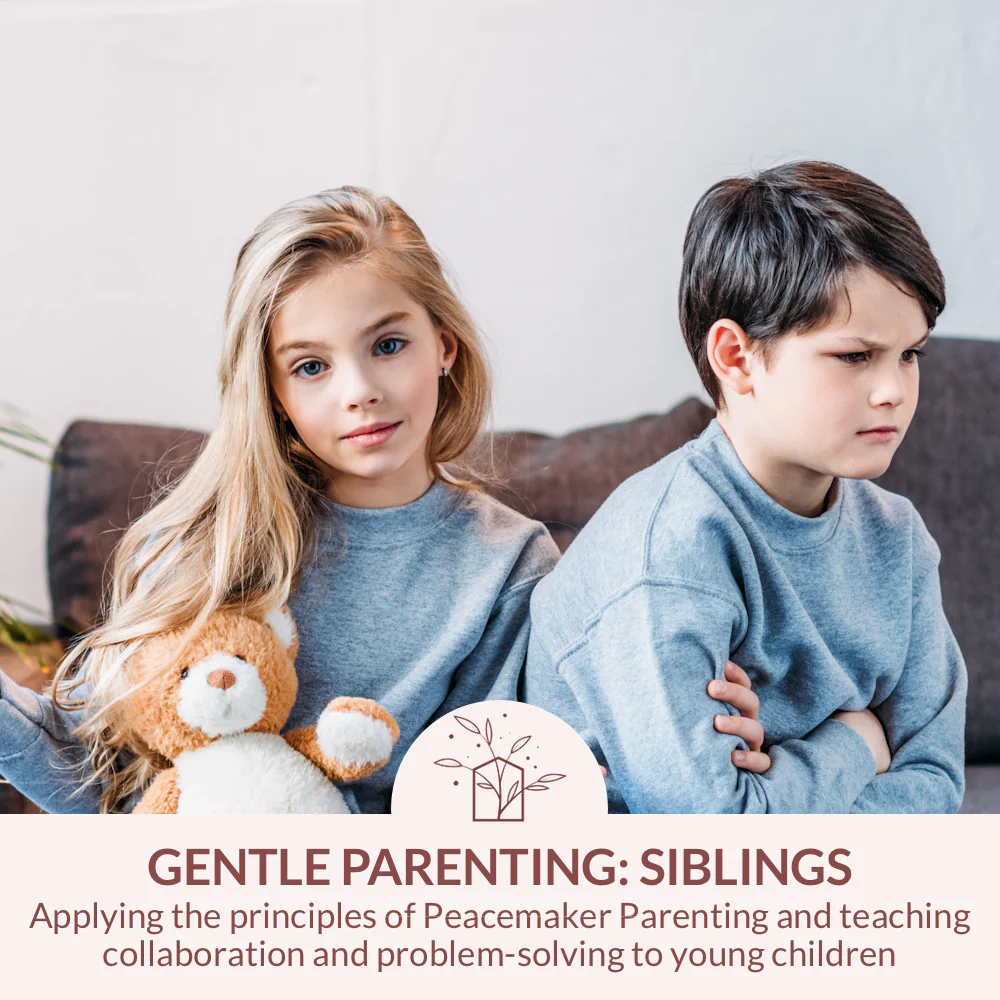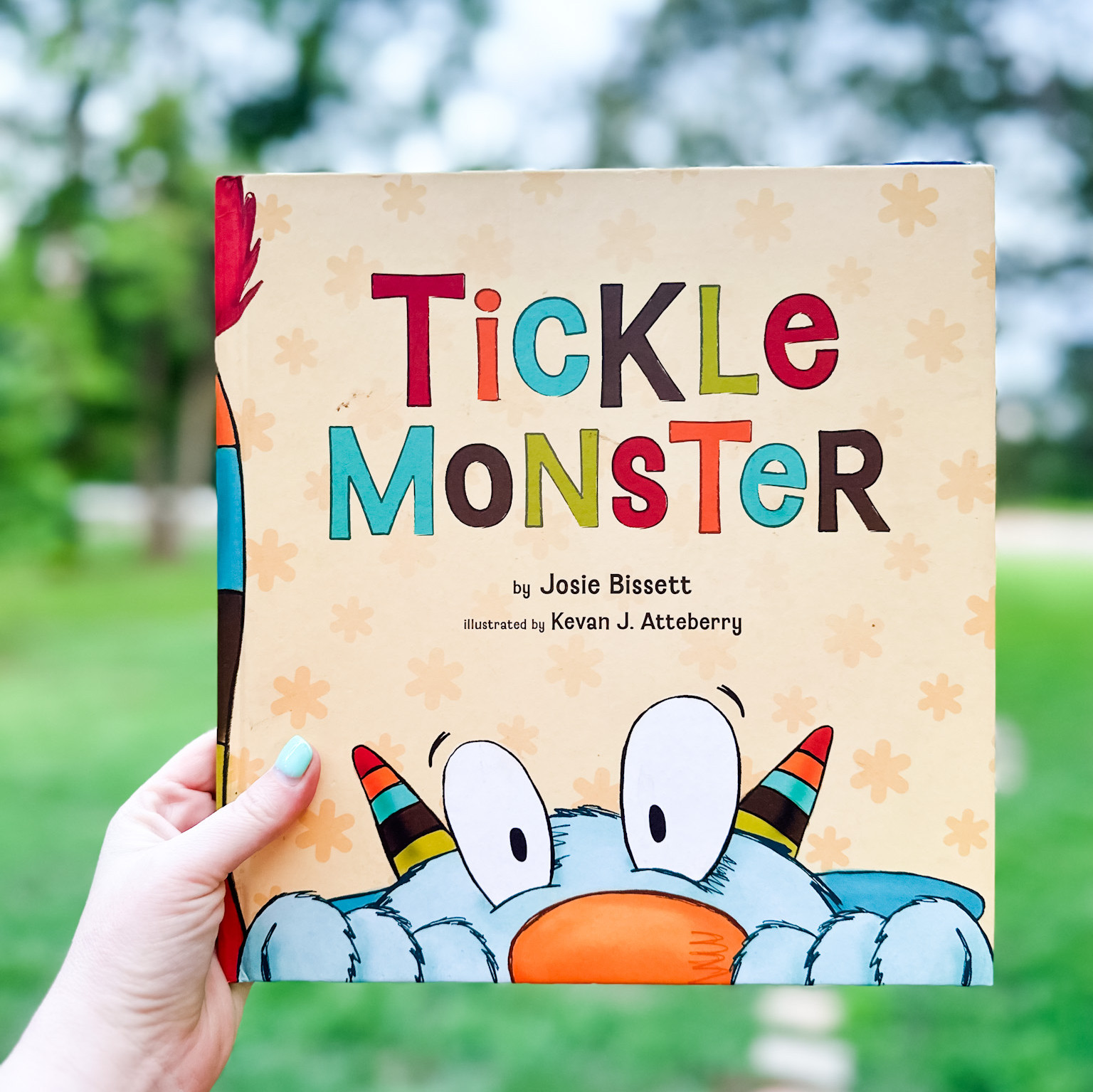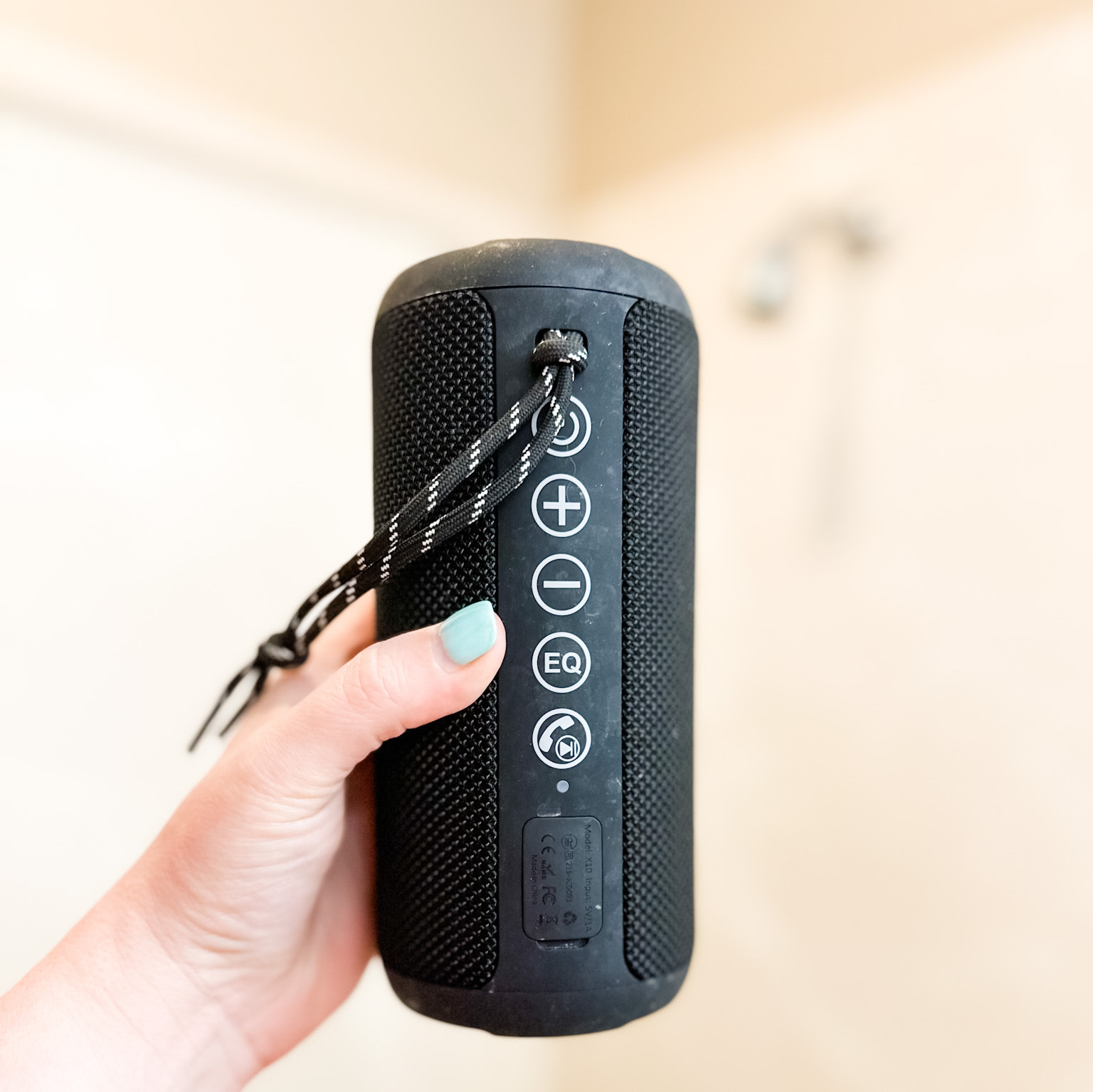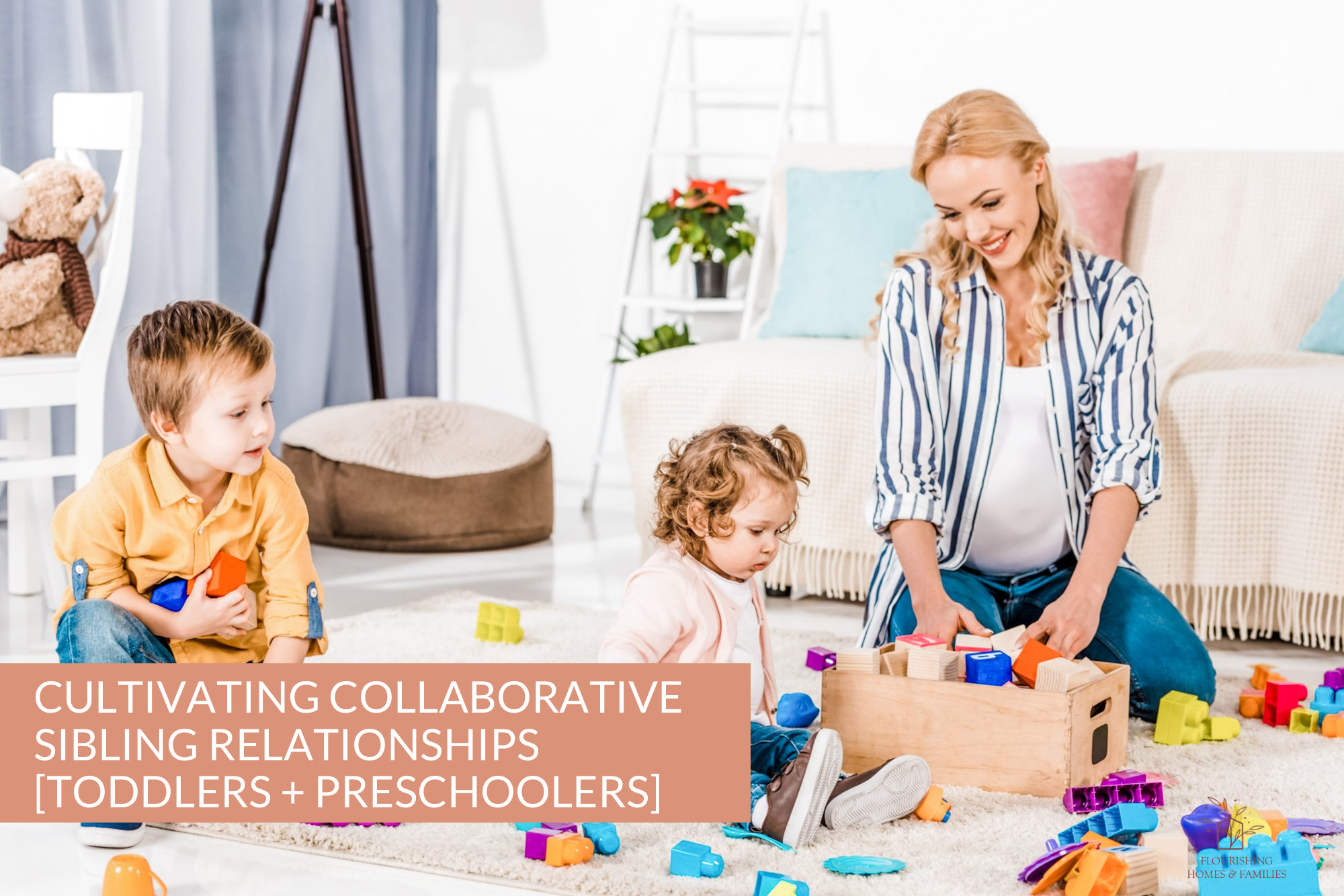
Summer is an exciting time–the idea of having the kids home more feels really sweet and sentimental…but then there is the real-life part of that is how they interact with each other.
In a home where peace is a core family value, it is really important to cultivate those peace-loving relationships beyond just parent and child. The goal is for those peace-making to extend into every relationship within the family.
How do we cultivate that + what does that look like?
I have found that one of the ways I love to promote peace in our home is by seeking out collaboration over competition wherever possible.
I’m not saying that competition is a bad thing, but for a peaceful sibling relationship, collaboration abilities are pretty key. The two ways that work best to promote this collaboration specifically among my children and their relationships with one another are through collaborative games and collaborative tasks.
Collaboration is more than just “My kids aren’t at each other's throats today so that’s good!”
It is a vital tool that is necessary for children to have in order to ensure peaceful relationships.
I LOVE collaborative games because they're fun, calm, and have a clear direction my kids can pursue together. There is less fuss at the beginning and end because there isn’t a concern about winning or losing. The attitude is generally happy and the instructions/expectations are clear for each player because it is still within the rule set of a game.
Peaceable Kingdom makes some excellent Collaborative games (especially for toddlers + preschoolers) that we love and play regularly in our home. Here are a few…
- Monkey Around: My kids have a bawl playing this! I love the use of pictures on the cards because the game is geared toward kids as early as age 2 but the familiar pictures allow toddlers + preschoolers who can’t read yet to be able to play *mostly* independently without an adult. It has been the source of a lot of good bonding time for my 2! Check out Monkey Around here.
- Acorn Soup: This became a very fast favorite when my kids were 2 + 3 years old! There is so much room for creativity and even though there is a designated goal (to make a soup according to the recipe on the card) my kids really like to role-play that one of them needs a meal and the other is happy to serve it. Check out Acorn Soup here.
- Best Dressed Banana: If you have kids who love to be goofballs–this is a game they just might love! Humor is a great tool for kids who need a little help in their relationship. There is nothing intense about this game–rather it is silly and encourages compliments + creative thinking. A win-win! Check out Best Dressed Banana here.
- Hoot Owl Hoot and Dino Escape: For kiddos who like a challenge, but who struggle with losing, Hoot Owl Hoot and Dino Escape are two games that have a strong challenge and goal in mind, but that promote collaboration and teamwork. Both of these games have just enough chance involved to make it fun, but they do require paying attention and promote critical thinking too. Check out Hoot Owl Hoot here. Check out Dino Escape here.
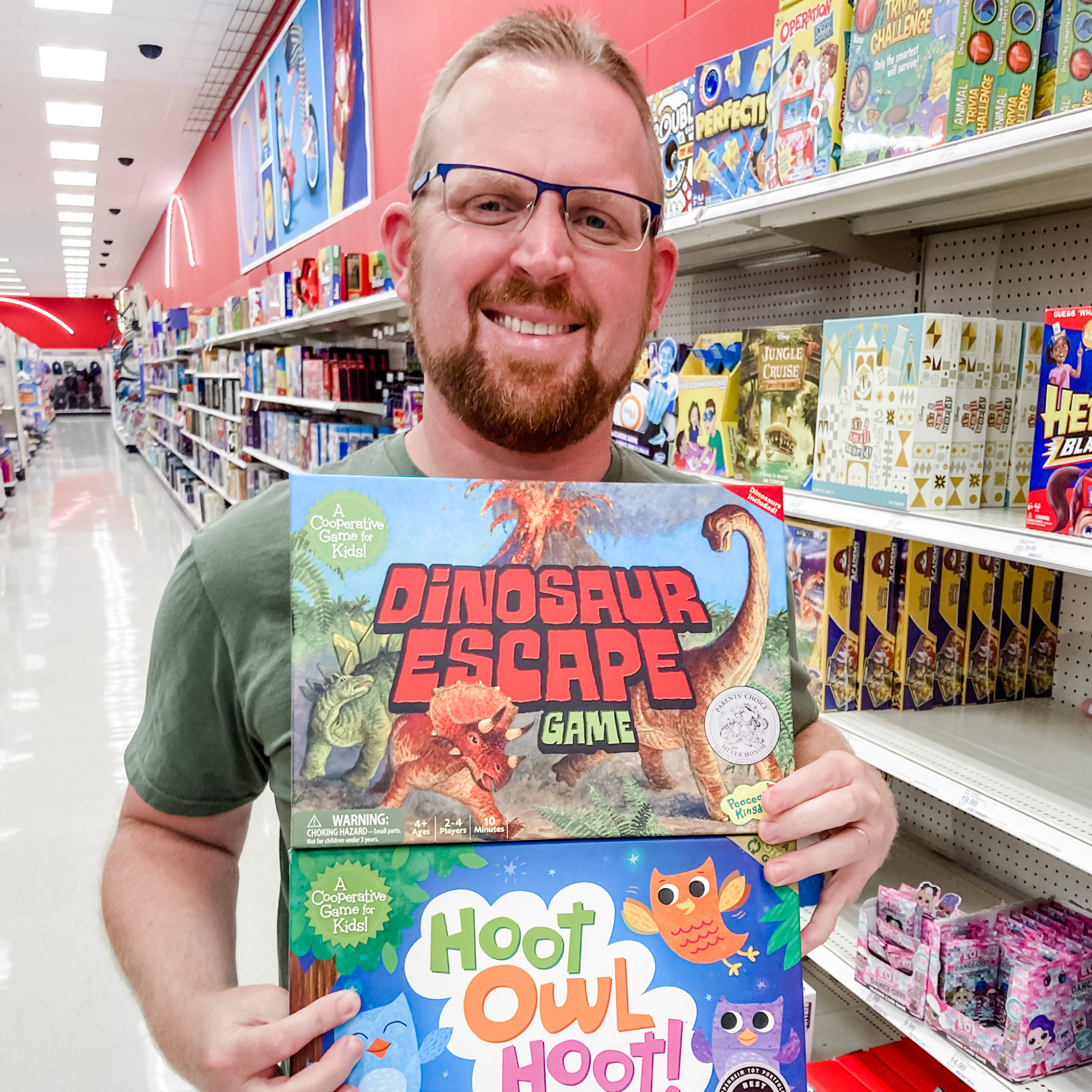
We love these two so much we frequently give them as gifts!
Collaborative TASKS are another tool that encourages sibling unity.
This may really depend on paying some attention to the personalities of your kids as you seek to find these opportunities, but for us, some examples are:
- Floor puzzles: Melissa + Doug make good quality floor puzzles that my preschool-aged kids can do together! I’ve found that the smaller puzzles are tougher for little kids to work on together because there is less “me space” for each kid and both of my kids like to have their own workspace. Larger floor puzzles allow them to work together but also have some space.
- Chore time: Chores, or family contributions, are a regular thing in our house, but rather than me delegating every single thing, I’ll often list the things we need to accomplish and let the kids figure out how they can work together on something while I work on something myself. This isn’t always the biggest hit, but it is something we are intentionally working on and is teaching valuable skills of teamwork even on the harder stuff and also enjoying the satisfaction of a job well done together.
- Group art: We really enjoy art in our family–watercolor and dot marker art are two favorites in our home right now! Initially, for our scheduled art time I would set the kids up independently with their own art supplies, but recently I started using large classroom post it paper and having the kids work together on art projects. The dot markers are especially great for this sort of thing. It is a similar concept to the small puzzle vs floor puzzle thing. Sharing a small piece of paper would be a nightmare, but having more space to work together is really great a lot of the time. Sometimes I’ll draw a few tree trunks and branches all over the paper and encourage them to fill it in with leaves and different fruit to create their own orchard. That’s a favorite right now!
Do you have something that you’re intentionally using to cultivate unity between your littles right now? We’d love to hear it! Add to the conversation in the comments or post to social media and tag us so we can feature your tips. And if you haven’t already, be sure to check out our workshop specifically aimed toward siblings. We know you’ll love it!
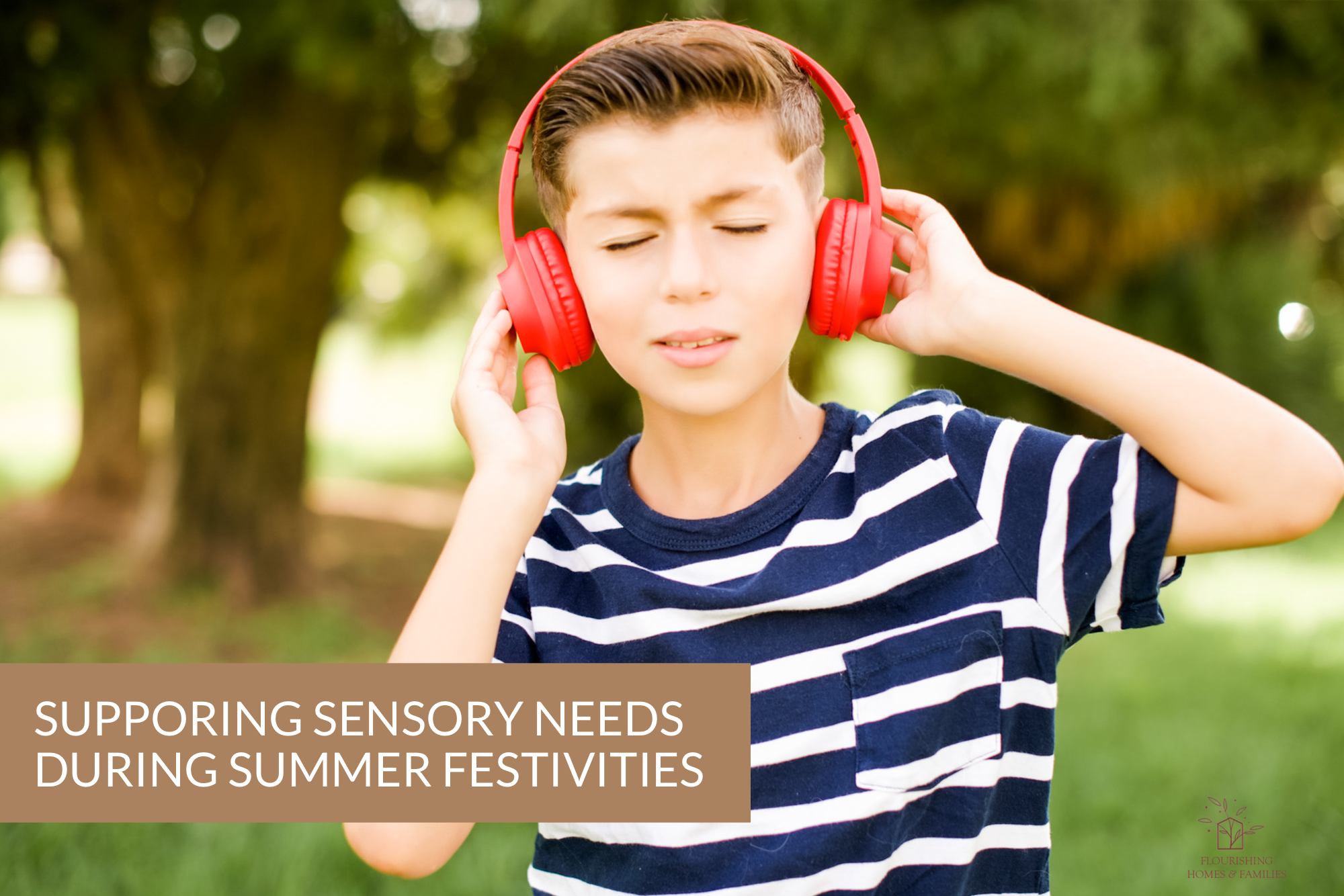
The Fourth of July is a time for celebration, marked by colorful fireworks, vibrant parades, and lively gatherings. However, for young children, neurodivergent people, and kids and adults with Sensory Processing Disorder (SPD), the heightened sights, sounds, and crowds can be overwhelming and lead to sensory overload. As caregivers and parents, it's essential to create a supportive environment that allows children with different sensory needs to enjoy the festivities while managing their sensory needs. Here are five tips to help children with SPD during July 4th celebrations.
Use Noise-Cancelling Headphones
Fireworks and loud noises are integral to Independence Day celebrations, but for children with SPD, they can be distressing. Noise-cancelling headphones act as a barrier, reducing the impact of sudden and loud sounds. They provide a sense of control, helping children with SPD feel more at ease and comfortable amidst the cacophony. Encourage your child to wear noise-cancelling headphones during firework displays or other noisy activities, ensuring they can still participate without overwhelming their senses.
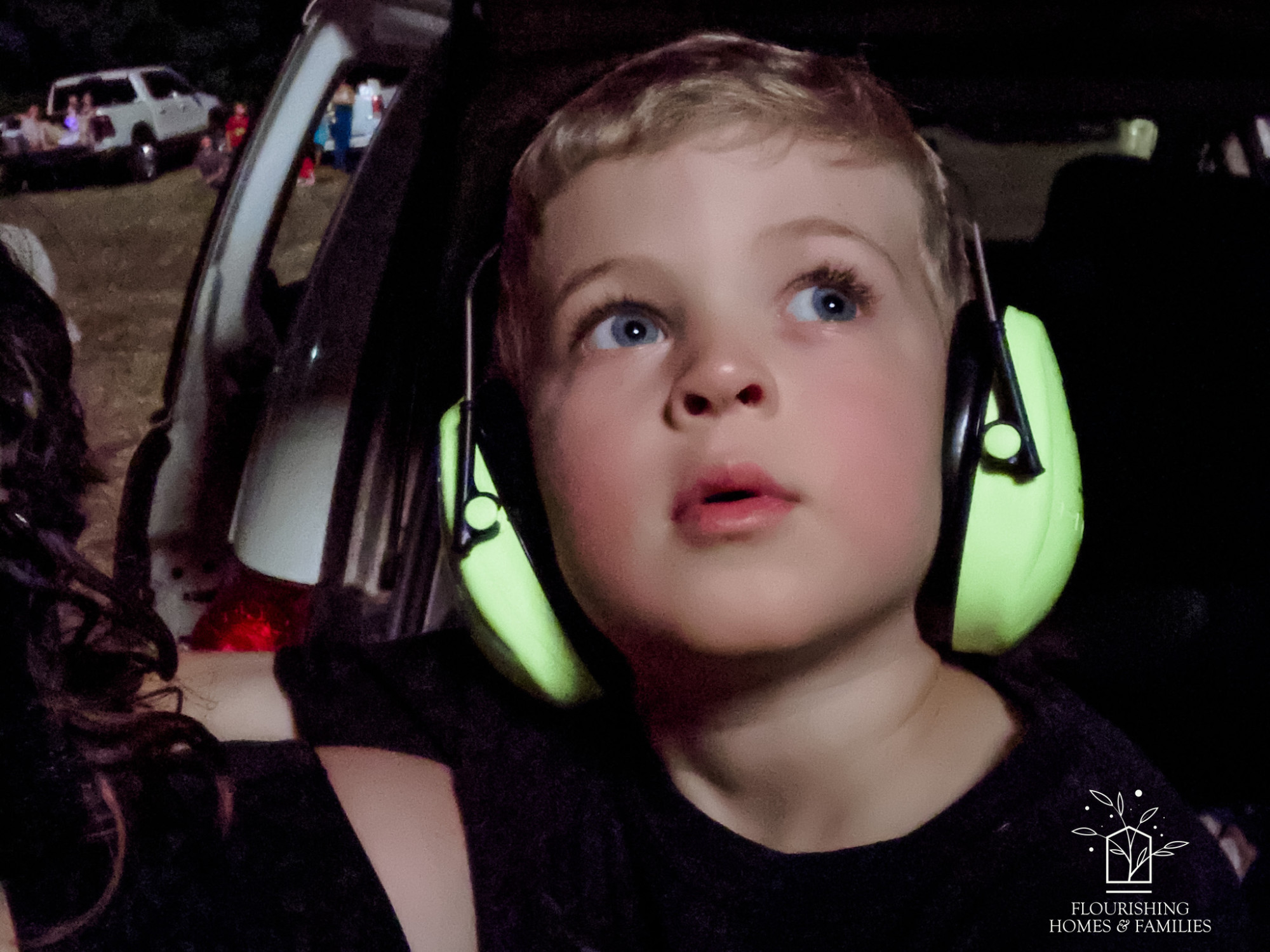
Our sensory-sensitive kiddo watching fireworks in 2020.
Stick to a Predictable Schedule:
Children with SPD often thrive on routine and predictability. During July 4th celebrations, maintaining a consistent schedule can help them feel grounded and reduce anxiety. Communicate the day's plan in advance, including any changes in routine, and discuss what to expect at each event or activity. By setting clear expectations and offering reassurance, you can help your child prepare mentally and emotionally, minimizing sensory challenges.
Bring a Weighted Blanket or Vest
Weighted blankets and vests provide deep pressure input, which can have a calming effect on children with SPD. The gentle, evenly distributed pressure stimulates the proprioceptive system, promoting relaxation and body awareness. Use a weighted blanket or vest during July 4th celebrations, especially in crowded or overwhelming situations. Ensure the child's comfort by choosing an appropriate weight and size that suits their specific needs. Consult with an occupational therapist to determine the ideal weight for your child. We have this one.
Designate a quiet space where your child can retreat when feeling overwhelmed. This can be a designated area indoors or a pop-up tent or canopy outdoors. Fill this space with soothing items, such as soft blankets, pillows, or sensory toys. Encourage your child to take breaks and step away from the hustle and bustle of the celebration when needed. This retreat offers a safe haven where they can self-regulate and recharge, ensuring a positive experience throughout the day. Our Grace Space instant download includes a Grace Space On-the-Go.
Plan Sensory-Friendly Activities
Seek out sensory-friendly activities that align with your child's preferences. Instead of crowded parades or firework displays, consider alternatives like attending a daytime celebration, visiting a sensory-friendly community event, or organizing a low-key gathering with close family and friends. Such activities may provide a less overwhelming environment, allowing your child to participate and enjoy the celebrations without feeling overloaded.
By implementing these ideas, you can create a sensory-friendly environment for children with different sensory needs during July 4th celebrations. Every child and family s unique, so tailor these strategies to meet your child's specific needs. Consulting with an occupational therapist can provide further guidance and personalized recommendations. With a little extra planning and consideration, you can plan a joyful and sensory-friendly experience on Independence Day.

Do you find yourself stuck when summertime comes along and all of a sudden the happiest days end with dramatic meltdowns and tears at bedtime?
Maybe it’s a foreign thing that is making you crazy.
Maybe it’s just a thing of dread that you have to ‘get through each night
Maybe they’ve been fighting bedtime for (literally) their whole lives and now it’s worse and you’re ready to start pulling out your hair.
Wherever you fall in the mix, you’re not alone and you’re not without help.
I know we all wish there was a one size fits all bedtime solution for these tough nights, it can be so tough when every night feels like an inescapable challenge with no rules and no winner. But I’m here to come alongside you and remind you that we are all learning and doing our best. Here are some things to consider if you’re in the ‘exhausted and struggling at bedtime’ mom's club.
- Visual bedtime routine
For a lot of families, busier days mean more unpredictability for kids. There is typically a lot less structure during summer when school is out and there is more going on. For kids who really need structure and a say in their day, allowing them a visual routine that they can arrange, see, and predict can help things feel smoother because bedtime is no longer just another unpredictable event at the end of a long day.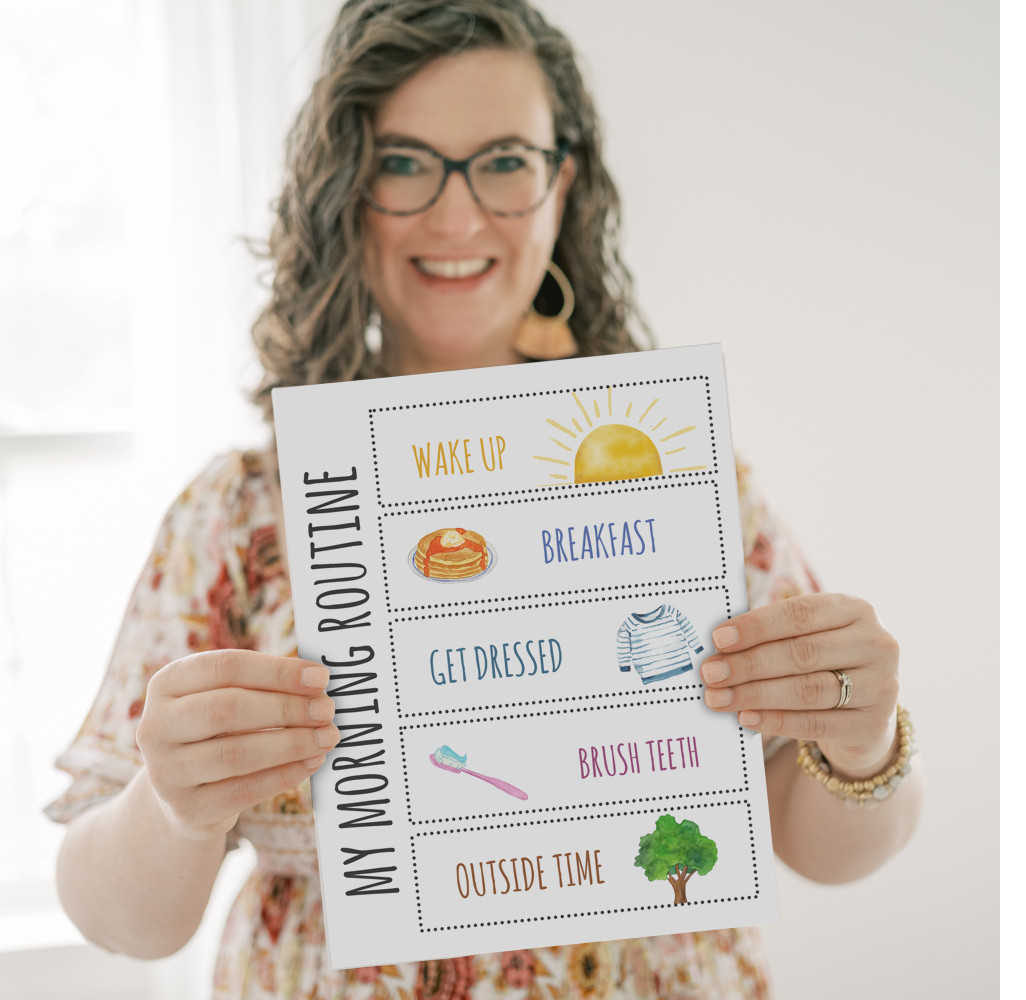
- Check the environment
I have one child that is really sensitive to the temperature in the room. I can’t even tell you how many times I've just needed to change the temperature in the room and then things settled down fast. My son really needs the room to be chilly. Not just cool, but actually chilly. It’s always been his thing. I don’t relate to this at all because I tend to be really cold all the time anyway, it was such a strange thing but once I saw the correlation I realized it was consistent and it was just part of what he needs to settle in and get cozy. - Hydrate + nourish throughout the day
Be intentional to hydrate + nourish your children throughout the day! Bedtime is not the best time or place for a full meal and a huge beverage! But a child who is hungry or thirsty just won’t settle well into sleep and on the flip side, catching them up on calories and hydration can set them up for nighttime wake-ups because they need to use the bathroom or their bodies are so busy digesting that they don’t get the quality sleep that they need. So the goal here is just to be intentional with hydration and nutrition throughout the day to avoid squeezing it in right before bed.
- Set a screen time shut-off time
Choosing a time of day when the home becomes screen-free can help your child’s brain settle down. Screen time is super stimulating for the brain and having screen time too close to bedtime can make it harder for kiddos to settle in and feel relaxed. Shutting screens off 3 hours before it’s time to settle seems to be a good limit for us–but this could look different for every family so feel free to experiment and see how it makes a difference. - Set psalms to music and sing them to your child
Part of helping your child settle into peace is being in that place of peace yourself. When I find that a tough place to find for myself, I like to just pause the chaos and sing psalms to my kids. It is a good grounding technique for myself, speaks truth to my children, and is also reassuring for both of us. This isn’t fancy and there is no musical talent required. In our home, some psalms nicely take their own tune as they come out, but others come out to the tune of Cocomelon songs. Both work just the same! - Help your child decompress before bedtime
I get it, sometimes it’s late and we just want to say “that’s it. Now it’s time for bed” but kids need time to unwind and decompress just like us grown-ups. Start working with your kids, no matter how young, on how their brain needs to unwind. Depending on the age, it could be anything from a book or a puzzle to coloring or just talking or journaling about their day. This is really child-specific and it could require some trial and error–but it is a really important skill for them to have and when they’re feeling calm and all ‘unwound’ bedtime will be easier for everyone. - Be intentional to connect throughout the day
Our kids are really good at asking us to connect with them–the trouble is, it doesn’t always sound like "Mommy, I’m really feeling like we need to connect." Instead, especially for little children, it is *more often* going to sound/look like meltdowns, tantrums, crying, and boundary testing. Sometimes those types of behaviors are really a cry for connection. And no matter why you’re in there with them, if you’re there with them the connection sensors in their brain say that is what they need. To avoid this desperate plea for help, be intentional to connect throughout the day so that they aren’t suddenly realizing they haven’t connected with you right before it’s time to go to sleep.
Do you have any helpful tips you’d like to share with our community about bedtime during the summer? We’d love to hear what you have to say–drop a comment below!
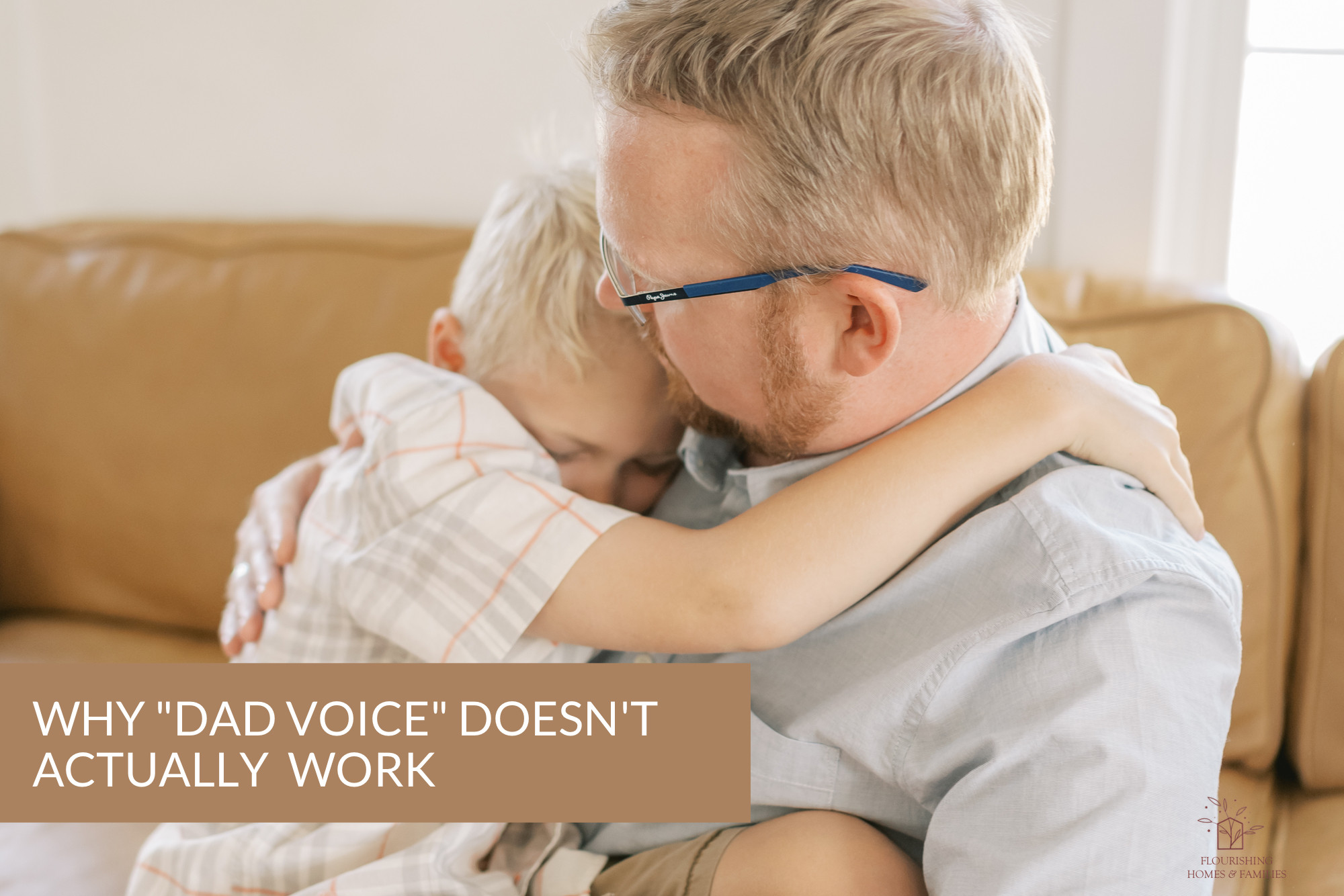
I never expected I would be a parent who yelled at my kids. I'm typically a pretty quiet guy. Unless I'm proclaiming God's Word. Plus I'm usually a pretty patient person. At least that's what I thought before I lived with toddlers.
But as my son got older I got into the habit of using my "Dad voice." You know the one. The one that stops you in your tracks. The one that clearly re-asserts parental authority. The one that reminds you that Dad is a whole lot bigger than you are. Why did I use it? Because it seemed to work. It would instantly stop whatever misbehavior was happening.
There was just one problem. It made it impossible to actually discipline my son. Sure the behavior was stopped, but he wasn't learning anything from me. Once I went into Dad Voice, he stopped listening to my words and only heard my tone. His brain went into fight-or-flight mode and his sole focus was on escaping the interaction as quickly as possible. Which meant he learned nothing. Which meant we were probably going to do it all over again very soon. My Dad voice was a failure.
So what did I do? I kept working at not channeling my frustration into my voice. I continued to practice consciously choosing a calm voice before entering a situation. I kept choosing to do better as much as I could, until using my calm voice became a habit. I'm still not perfect. I used my Dad voice once last week. It still has the same effect. I'll keep working on it.
But as my son got older I got into the habit of using my "Dad voice." You know the one. The one that stops you in your tracks. The one that clearly re-asserts parental authority. The one that reminds you that Dad is a whole lot bigger than you are. Why did I use it? Because it seemed to work. It would instantly stop whatever misbehavior was happening.
There was just one problem. It made it impossible to actually discipline my son. Sure the behavior was stopped, but he wasn't learning anything from me. Once I went into Dad Voice, he stopped listening to my words and only heard my tone. His brain went into fight-or-flight mode and his sole focus was on escaping the interaction as quickly as possible. Which meant he learned nothing. Which meant we were probably going to do it all over again very soon. My Dad voice was a failure.
So what did I do? I kept working at not channeling my frustration into my voice. I continued to practice consciously choosing a calm voice before entering a situation. I kept choosing to do better as much as I could, until using my calm voice became a habit. I'm still not perfect. I used my Dad voice once last week. It still has the same effect. I'll keep working on it.
What if your child could learn real respect without you demanding he give it? What if you could teach our child to obey without forcing her to do everything she’s told? What if you could do all these things while building a relationship of honor with your child? Honor that outlasts our child’s childhood? Do you desire to instill values of honor and respect in your children, but sometimes find it challenging? We understand your concerns, and we're here to help.
Here's what past attendees have to say:
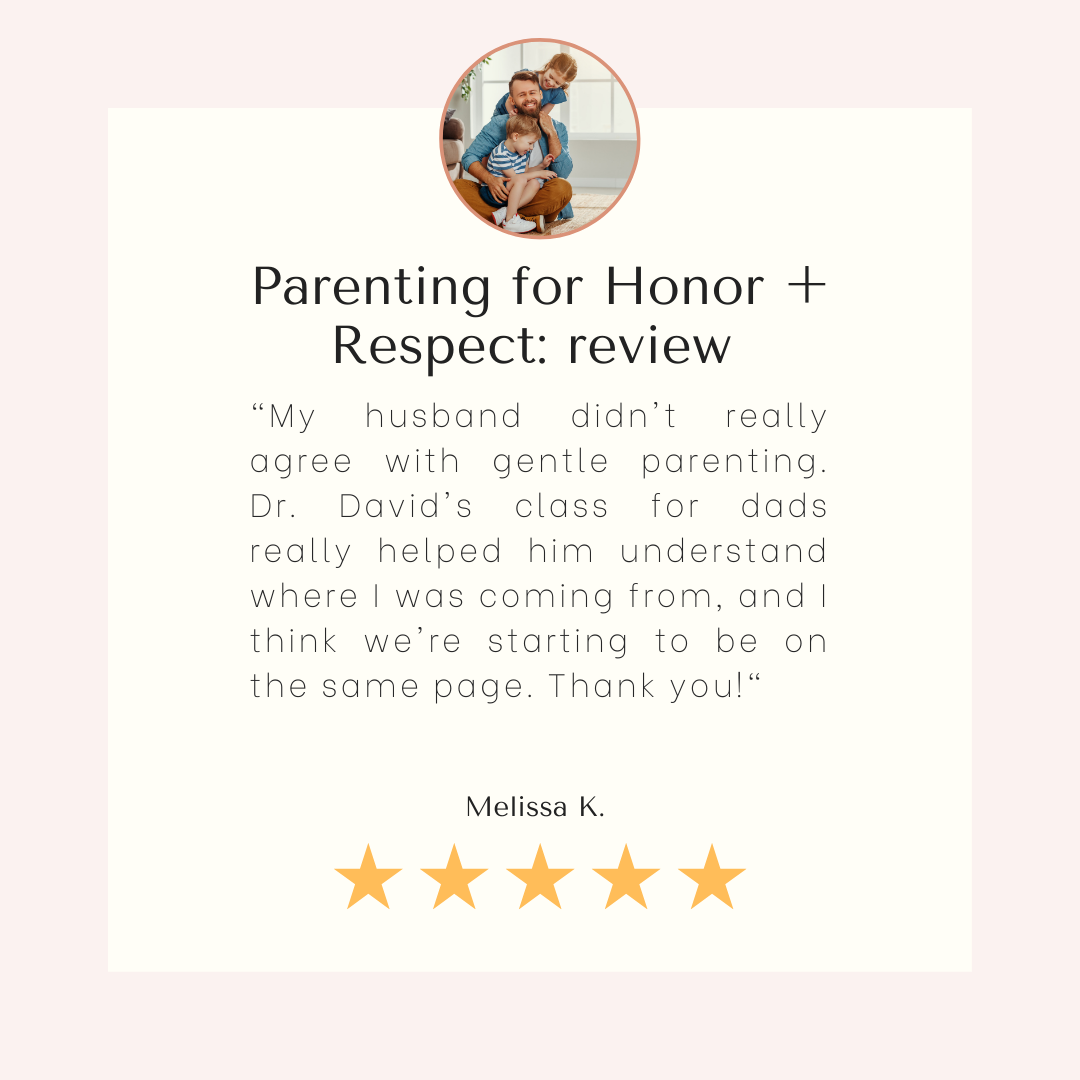 | 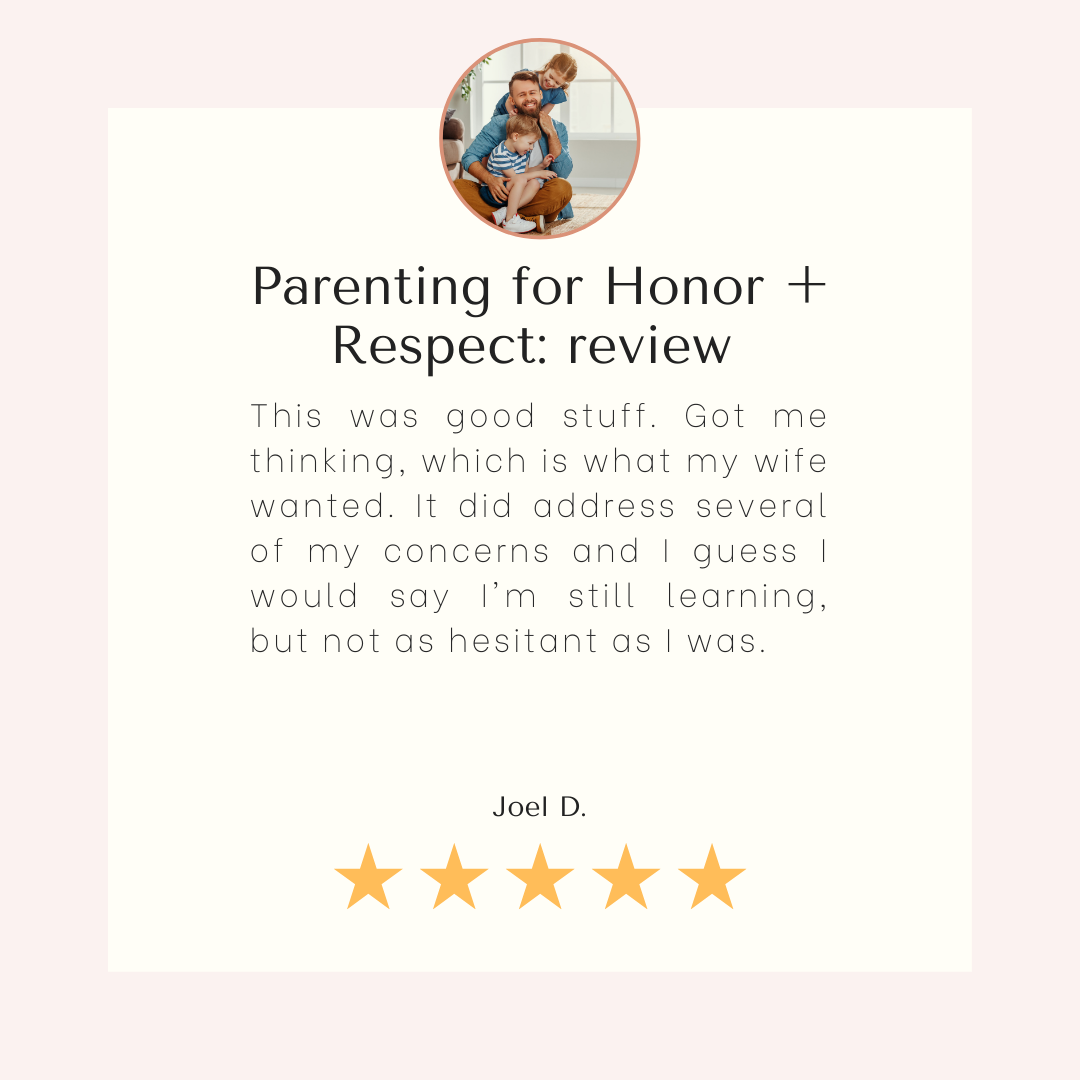 |
You Might Also Like
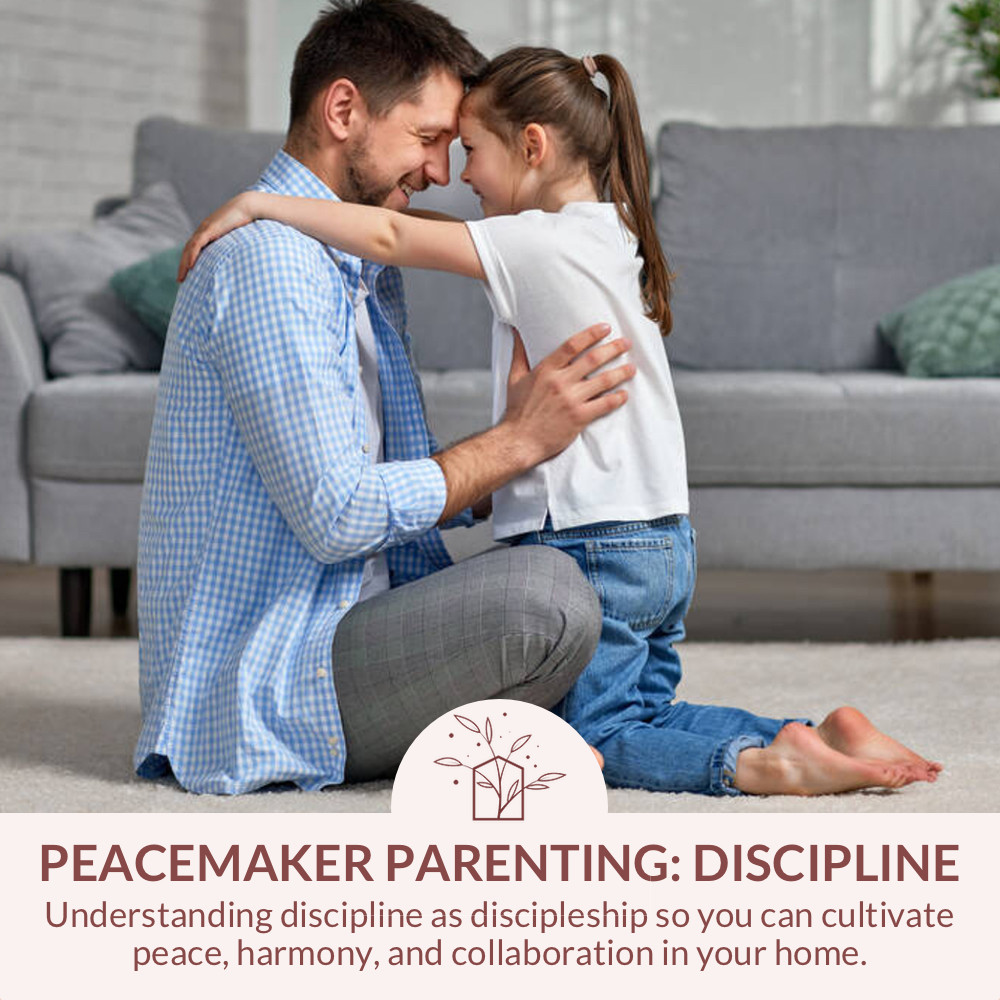 |  |

We may earn a commission from purchasing through affiliate links used in this post.
If you're like me, and Father's Day snuck up on you before you realized it, don't worry! We've made a short list of last minute Father's Day gift ideas that you can still order and get in time to surprise the dad(s) in your life! As a reminder, we only recommend items and products that we personally use and love. We know you can shop anywhere and use anyone's reference link, and it is our goal that you know you can trust our endorsements and recommendations.
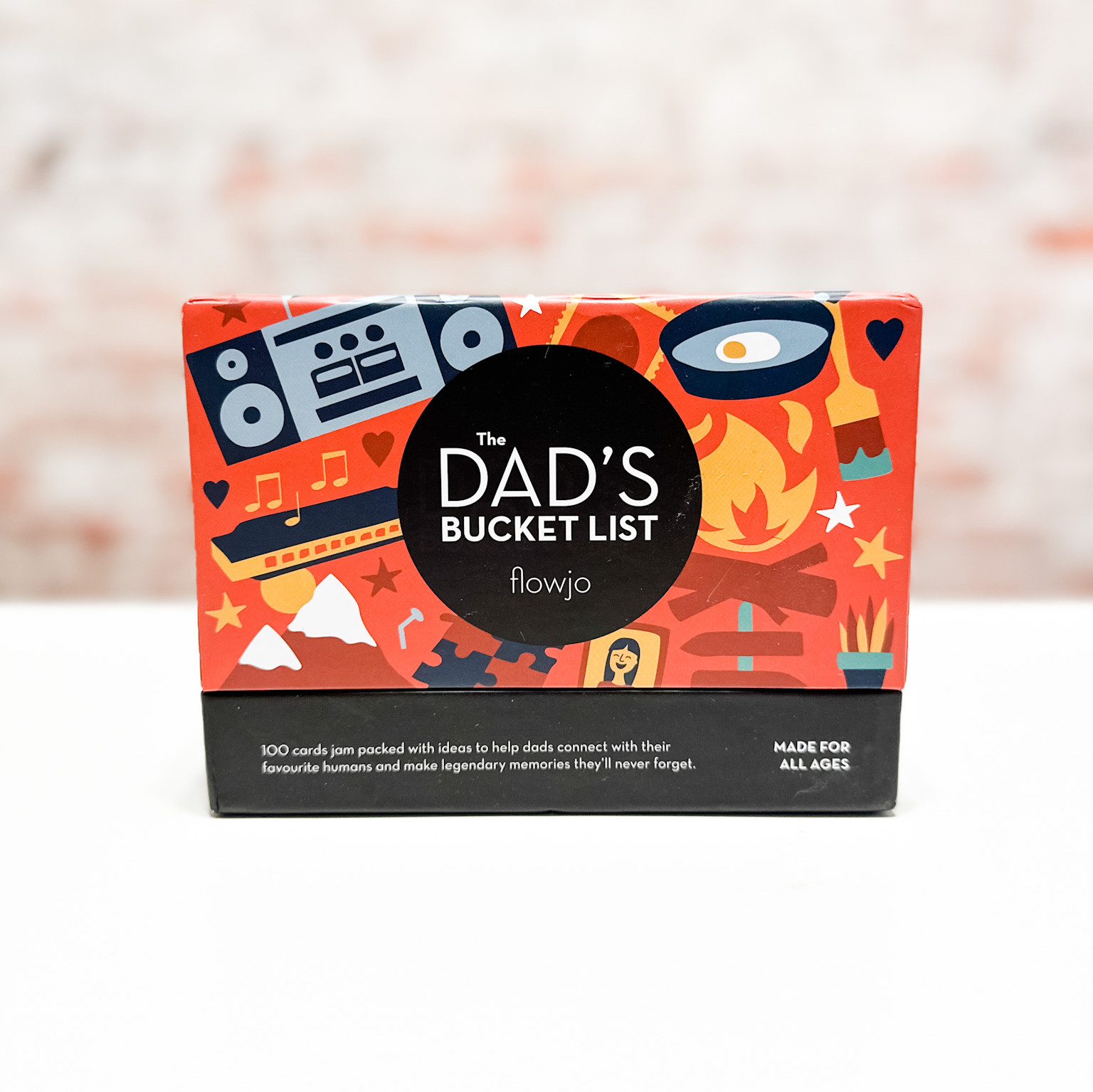 |
If you're looking for more parenting book ideas perfect for Father's Day, we recommend:
- Parenting with Dignity by Mac Bledsoe
- Heartfelt Discipline by Clay Clarkson
- Discipline that Connects by Jim and Lynne Jackson


